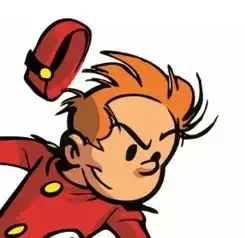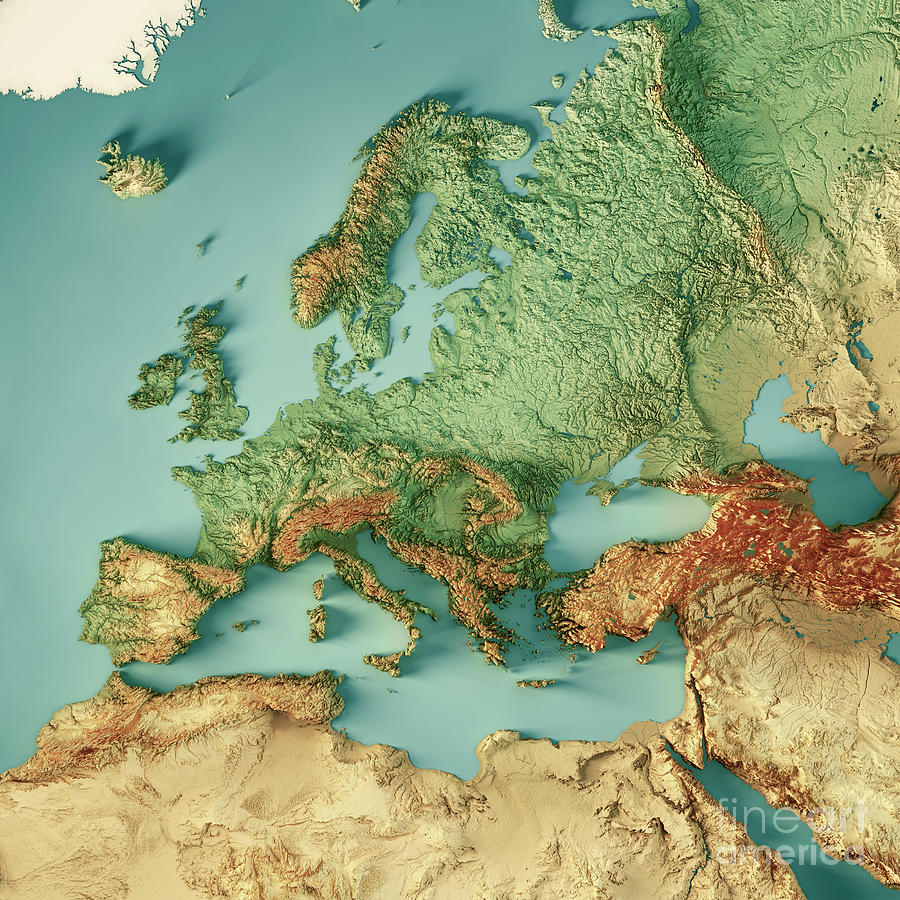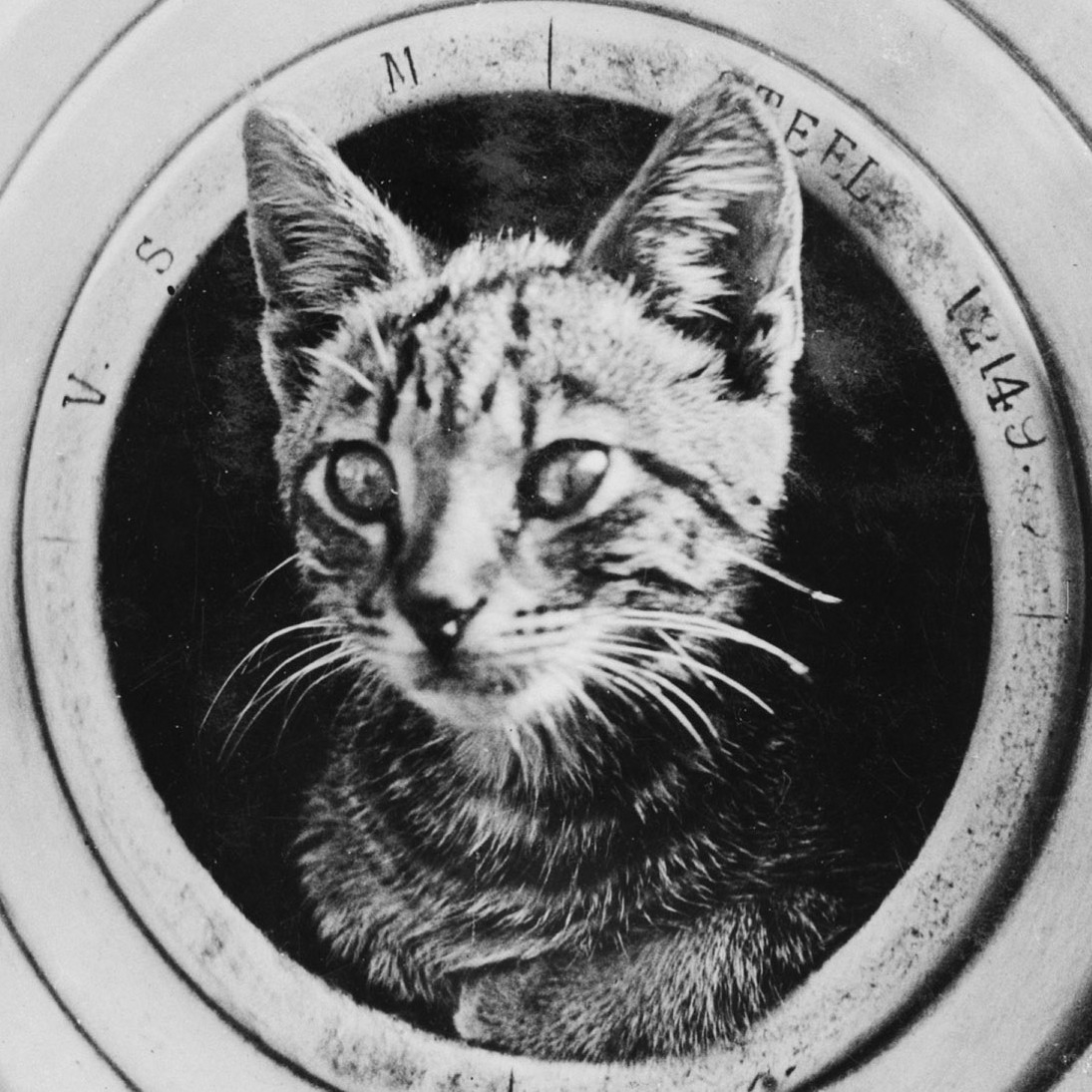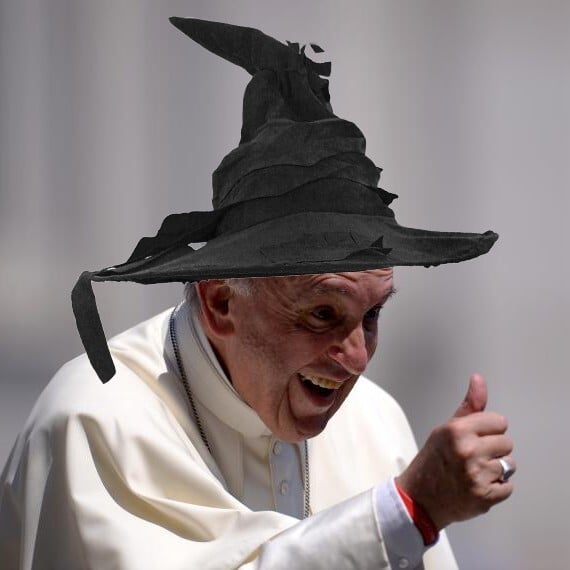Omg! One of my obsessions!!!
Whenever I travel somewhere, as a souvenir, I buy the local design of playing cards. Even within the colour-regions there are many variations. I might be biased because I’m dutch, but the Dutch Cut is one of my favourites, because of the architecture on the aces!
In Italy every region has their own design! (Even within the ones shown in this map.)
even in the colored areas
…of the cards, I eventually understood.
Oops, maybe that was unclear. I meant even within each area of the map; blue, yellow, orange, green there are regional variations in designs!
In Spain every single playing card company has its own design (even if they are all swords, sticks, coins and cups), probably more than one. I don’t think I’ve ever seen the same design twice, every house I go to has different cards.
Yeah that happens a lot in the rest of the world too. In Italy there are two main manufacturers and they each have their own slight variations upon every regional design. Here in NL I don’t even see the classic (carta mundi brand) dutch style anymore. It’s mostly American cards here now.
This surprised me when I was younger. Heart, diamond, spade, and club seemed so foreign to me. For the record, in Spain we call them copas (cups), oros (coins (literally golds)), bastos (clubs), and espadas (swords).
Also, the pictures used in the map are not the most commonly used ones here. this (top row) is what most cards use
Funny enough, in Portuguese, the names for the sets are
dirtydirect translations of the Spanish versions, but applied to the French icons. It didn’t make much sense to me calling a losange “golds”, or a heart “cups”, a leaf “swords”, and a clover leaf “sticks”.Edit: autocorrupt
Somehow this is the first time I’ve realized the symbols don’t match their names at all. Not really sure what’s dirty about them but it’s actually pretty handy to have all suits be called the same names in French and Spanish suits since both are widely used around here in Southern Brazil.
Not the previous poster but I think the “dirty translation” is because in Portugal some things weren’t translated at all (we use the actual word “copas” even though it’s not a Portuguese word) and others are translated differently (were the Spanish use “bastos” - clubs - we use “paus” - sticks).
Do they have ultra-stylized versions too?
The French symbols are either pure black or pure red, they’re symmetrical, and they’re fairly abstract. The “diamond” is just a rhombus. The Spade and Club are fairly abstract shapes that don’t look like anything in particular.
In the image, all the other versions are multicolored, and still seem to represent real-world objects. But, I’m curious if there are “modern” decks where say the coin (oro) is just a circle, or the club is just a long thin rectangle, or something.
You do realize that that “club” is a gherkin, right? :)
Fwiw, I like all the properly illustrated variants so much better than the French variant that always feels lifeless to me.
I don’t think so. The other variants of the Spanish-inspired cards are clearly staves. Besides, basto is very, very close to bastón, the word for a staff like a walking stick. Gherkins are called pepinillos
It was an attempt at a joke. The one version you linked to is green and kind of looks like a gherkin. That’s all.
Looks like you
Feel free to join !esp@lemm.ee for a Spanish speaking community!
Suscrito!
Not sure if it is the same as Mexico, but the “oros bastos” set doesn’t have cards 8,9,10 but jump from 7 to sota (fancy lad or something like that), caballo (horse) and Rey (king).
This is similar to the set I was used to: https://www.casino.es/imagenes/juegos/mus/baraja-espanola.jpg
Because of that we use different sets for different games.
Edit: the aces always had very cool designs, with the gold ace having the card brand on display.
I heard about this, and I was excited to pick up a different style when I went to Germany. I got there, and all of the cards used the standard, international suits. No one knew what I was talking about.
The German suite is most common in east Germany. west Germans use the french deck, or if they’re playing German card games they use the tournament German deck (which is just the french deck with different colours)
Geographical east, not political East though, Bavaria very heavily uses the German deck. You don’t play Bavarian Schafkopf with a french deck. That’s just weird. I personally also find it weird to play mau mau or Schnautz (Schwimmen) with a French Deck. Doesn’t mean though, that we don’t use the French deck. You don’t play poker or rummy or cribbage for example with German cards. That’s equally as weird.
Huh? The German deck is also known as bavarian cards and they are very common in most of the German South. I’m from swabia and here you use different cards for different games.
Can you even play Schafskopf with the French deck??
Not just any colours but the ones of the German deck: Diamonds are orange because bells are orange, and spades are green because leaves are green. Also spades and leaves look almost identical anyway. Hearts are the same, and acorns become clubs.
And just to be pedantic: It’s not the “tournament deck”, it’s specifically the tournament deck for Skat, adopted when the East and German leagues reunified to avoid confusion. You’ll be hard-pressed to get your hands on a 6 or below in those colours because Skat uses 32 cards.
I do think it’s a good idea in general, though.
Schafkopf rules.
You should have asked for bavarian cards/ bayrische Karten and they would have probably known. They are not widely used in the north though.
The standard cards are everywhere, but the German variant is still used, at least in bavaria. Just talk with some grandpas in the village restaurants and they will gleefully get their cards out.
In Austria we’re almost always (= for everything except poker) using “doppeldeutsche” (double German) cards.
So, you would play Rommy or Canasta with the German cards?
We don’t play these games, we play others like Schnapsen or Hosn Owi instead
Which standard? There are plenty! ;p
Huh. That explains why in Portugal hearts is called “copas”. Also in Portugal diamonds are called “gold”. The design is the French one, but the names stayed the original ones.
All these designs have the same origin in tarot cards, they just evolved slightly differently.
Reading more about it, it seems like these are the original Latin suits, and the French tried to, and succeeded, in replacing them.
But “sticks” and “swords” are inverted, at least in this table.
I’m pretty sure this table is incorrect. Swords, spades and cloves are the same. Sticks, clubs, acorns are the same.
Is there a particular reason that the French style is so much more abstract than the others?
Suit evolution is quite an interesting topic. The first known card decks were usually made of several hundreds of cards and were not standardized, some didn’t even have suits. Symbols, images and shapes varied greatly as they were usually hand painted. This European suits are offshoots of Islamic suits. Most likely, each of these suit styles was an attempt to standardize some game or production at different historical points in time and through the interpretation by entirely different artists. The common theory for French abstraction is that they are much simpler symbols which are faster and easier to reproduce in large quantities. Particularly easy to engrave on the first woodwork prints for mass production.
Interesting, thank you!
I have no idea, but it looks like they would be much easier to paint with brushes. Or maybe it’s to simplify printing with a press; simple shapes, one color each. Just wondering aloud.
Cheaper to print in bulk
Oh God poor Italy, a nation torn apart not even able to see the same when it comes to playing cards. Truly a cursed people
I mean, up until the '50s they didn’t even speak the same language… every region had their own language (Italians call them “dialect”, but they’re in fact different langauges). Then television came and unified the language (standard Italian is just the dialect of Tuscany).
Italy is a very young country. Sure, the Ancient Romans unified the whole Europe, but Italy has only became a nation in 1861. Pretty young country if you ask me.
I like the story of mid-1800s crowds shouting “viva L’Italia!” and half the crowd wondering “who is Talia? Garibaldi’s wife?”
Wait until you see that every regione has their own drawings for the same suits
You can clearly see what region of Romania was part of the Austro-Hungarian Empire 😅
In Portugal, while we use the French/English cards, we still called them by the old names (Spanish/Italian).
We call clovers paus (sticks, clubs), pikes are called espadas (swords), diamonds is ouros (gold, coins) and hearts are called copas (cups).
I always found weird how the names had nothing to do with the symbols themselves. Now I understand.
Huh, now that you mention it, almost the same for Greece except for diamonds being more like “checkered” and for swords-sticks being the other way around for some reason. Also always thought it was weird!
Actually in France we have both design!
The second one is rarer but you can see it on the “Tarot de Marseille”
It’s a different set of cards, in this form there called “lames” (blades) or “arcanes” (arcana)
The set is divided in 4 colors also called family: “épée” (sword), “coupe” (cup, but think of it as the same type of cup as the saint grail), “bâton” (club) and “denier” (it’s an old coin)
This compose the 52 “arcanes mineurs”
In addition there also 22 “arcanes majeurs” called “atouts”
And it is usually recognize because it’s the base of the Tarot use for divination
But now it’s generally used to play the eponymous game of “Tarot”, a very good and very old game that me and my friend played a lot at uni
And with “both” from what it looks like you mean the french and italian styles.
Yes but also not only, we have MANY more design of tarot card, especially when considering “atouts/arcanes majeurs” as here a deck of tarot is an object of play but also an object of collection
Here an example
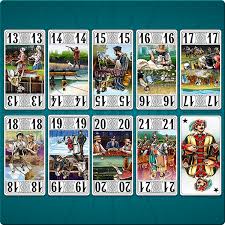
Love that the Spanish are using Tarot suits for their standard playing cards.
Or is tarot using Spanish suits?
Great question! I was under the impression the Tarot came first.
I looked it up. Wikipedia says,
Tarot (/ˈtæroʊ/, first known as trionfi and later as tarocchi or tarocks) is a pack of playing cards, used from at least the mid-15th century in various parts of Europe to play card games such as Tarocchini. From their Italian roots, tarot-playing cards spread to most of Europe, evolving into a family of games that includes German Grosstarok and modern games such as French Tarot and Austrian Königrufen. In the late 18th century French occultists made elaborate, but unsubstantiated, claims about their history and meaning, leading to the emergence of custom decks for use in divination via tarot card reading and cartomancy. Thus, there are two distinct types of tarot packs in circulation: those used for card games and those used for divination. However, some older patterns, such as the Tarot de Marseille, originally intended for playing card games, are occasionally used for cartomancy.
Italy is not completely correct. The orange area uses the drawing of a club (as in a thick wodden stick), they’re called “bastoni” (“sticks”).
RavenFellBlade @startrek.website
Love that the Spanish are using Tarot suits for their standard playing cards.
The spanish names are copas (cups), oros (gold), espadas(swords) y bastos ( clubs)
How do people play solitaire with non-french suited cards?
We don’t, or at least I have never tried it, but we have different card games for various types of cards, and we play these games more often than ‘normal’ card games. We also still have French playing cards for games like poker, blackjack, solitaire, and others, but they’re just not our main type of cards.
Curved. Swords.
Huh, pretty cool. I live in the blue area, and always thought others used the same type, because that’s what I’ve seen in all the places I’ve been. Is there data available for the rest of the world?
In latin America spanish style cards are often used, and you might find some southern italian designs with italian-americans. But for the most part the rest of the world uses the standard “french” suits.
Also, nowadays if you ask for a deck of cards in most of the other places, you’re still likely to get a french-suited deck. Usually the american style (think of your typical bycicle brand card deck).
When I tried to buy a dutch style deck here in the Netherlands they didn’t even have it at my local board game store! I had to order them online.
There’s a Dutch suit too?? I feel like some island inhabitant who just learned that there’s a whole world out there full of people, planes, porn, and pop culture, after having grown up alone with his coconuts. This is definitely a rabbit hole I need to explore.
Only Latin American country I’ve been to is Brazil, and at least the deck of cards we had there was French suit.
The brazil thing seems logical, since Portugal uses french suited cards too.
It’s not it’s own suit, we use french suits. But the design is it’s own thing, yeah!
Found this website that should answer your question: https://www.wopc.co.uk/explore/suits
Thanks, but that URL doesn’t load on my phone, so I’ll check it out on my PC tomorrow. I’m curious if all the countries I’ve visited have used French style.
I meannot really entirely correct. Slovenia does not use mainly german suits. Yes the southeast does often play briškula using the italian suits, but the res of the country uses the french ones. I have never even seen anyone have a deck of german playing cards. In fact I have never even seen such cards in a store anywhere.
